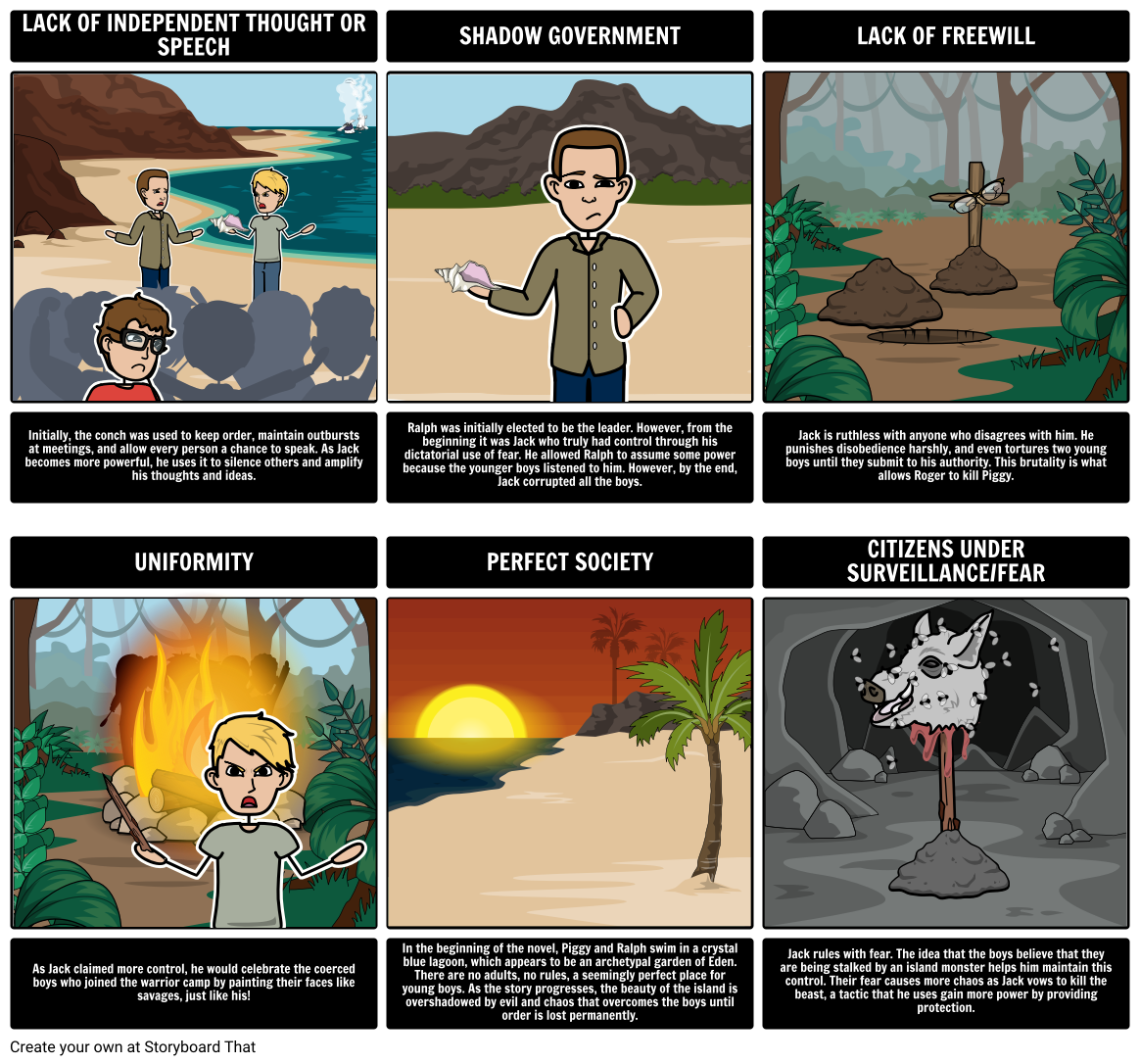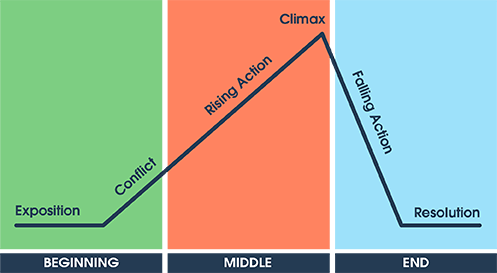Lord of the Flies Dystopia

Vous pouvez trouver ce storyboard dans les articles et ressources suivants:

Dystopie Définition et Caractéristiques
Plans de Cours par Rebecca Ray
La perfection a un prix et reste perpétuellement hors de portée. Cette contradiction n'est qu'une des raisons pour lesquelles les dystopies ont captivé les lecteurs de tous âges. L'idée d'une utopie, juxtaposée à la dure réalité qu'elle ne peut jamais exister, constitue un cadre convaincant pour le commentaire social et la critique.
'
Découvrez quelques-uns de nos autres articles éducatifs!
Storyboard Description
Lord of the Flies Dystopia | Lord of the Flies by William Golding
Texte du Storyboard
- LACK OF INDEPENDENT THOUGHT OR SPEECH
- SHADOW GOVERNMENT
- LACK OF FREEWILL
- Initially, the conch was used to keep order, maintain outbursts at meetings, and allow every person a chance to speak. As Jack becomes more powerful, he uses it to silence others and amplify his thoughts and ideas.
- UNIFORMITY
- Ralph was initially elected to be the leader. However, from the beginning it was Jack who truly had control through his dictatorial use of fear. He allowed Ralph to assume some power because the younger boys listened to him. However, by the end, Jack corrupted all the boys.
- PERFECT SOCIETY
- Jack is ruthless with anyone who disagrees with him. He punishes disobedience harshly, and even tortures two young boys until they submit to his authority. This brutality is what allows Roger to kill Piggy.
- CITIZENS UNDER SURVEILLANCE/FEAR
- As Jack claimed more control, he would celebrate the coerced boys who joined the warrior camp by painting their faces like savages, just like his!
- In the beginning of the novel, Piggy and Ralph swim in a crystal blue lagoon, which appears to be an archetypal garden of Eden. There are no adults, no rules, a seemingly perfect place for young boys. As the story progresses, the beauty of the island is overshadowed by evil and chaos that overcomes the boys until order is lost permanently.
- Jack rules with fear. The idea that the boys believe that they are being stalked by an island monster helps him maintain this control. Their fear causes more chaos as Jack vows to kill the beast, a tactic that he uses gain more power by providing protection.
Plus de 30 millions de storyboards créés




